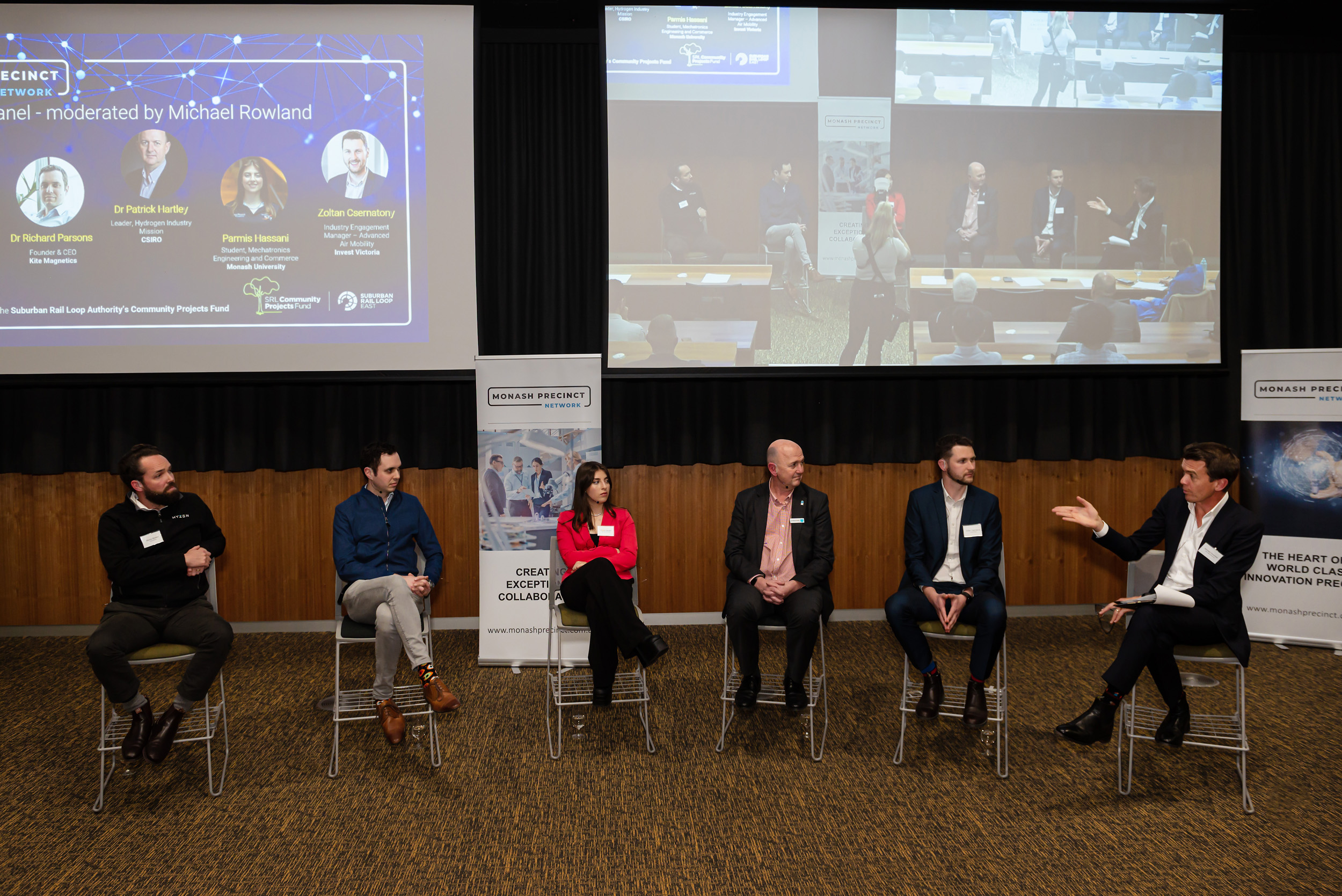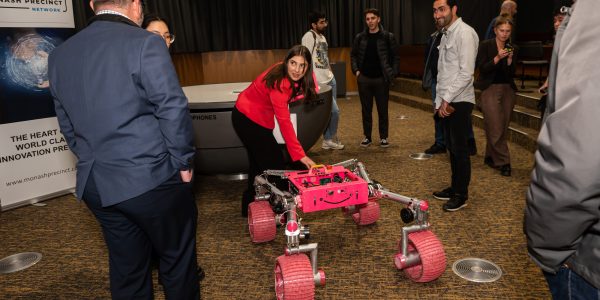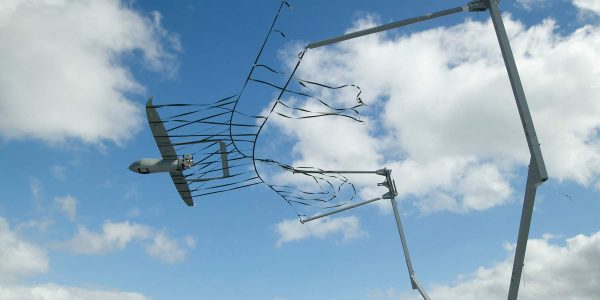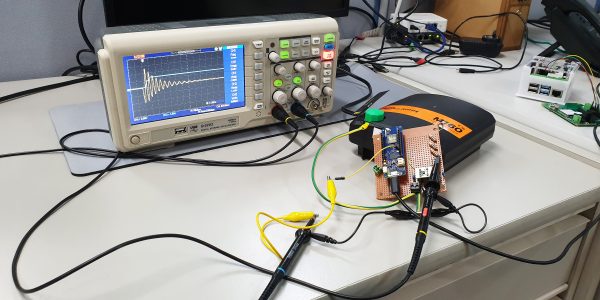A glimpse into the future of transport
Electric aeroplanes, hydrogen fuelled garbage trucks and trackless rapid transit are three ways Monash precinct organisations are exploring future transport options.
Around 100 people joined us for our event ‘Monash: Mobility of the Future’ hosted at Monash University on 26 September 2023 to learn about some of the new technologies and products in the transport sector from local leaders.
After seeing Monash University’s impressive Nova Rover make its way around the room and tackle a few stairs, attendees were primed for conversations centred around innovative transport designs.
ABC Journalist Michael Rowland moderated an astute panel discussion with Murray Newton from Hyzon Motors, Dr Richard Parsons from Kite Magnetics, Dr Patrick Hartley from CSIRO, Parmis Hassani from Monash University and Zoltan Csernatony from Invest Victoria.
Each panellist shared what their organisation is working on to enhance mobility of the future, showcasing Monash as a hub for transport innovation locally, nationally and globally.
Hyzon Motors is paving the way towards zero-emissions, hydrogen-powered commercial vehicles.
Kite Magnetics is developing the technologies required for a new age of electric aviation.
CSIRO is modelling transport options to reduce costs and improve efficiency and resilience.
Monash University is providing students the opportunity to design, test and build the next generation of Mars rovers.
Invest Victoria is part of the State Government of Victoria’s Department of Jobs, Skills, Industry and Regions (DJSIR) and connects investors with the Melbourne market.
Three key takeaways from the event included…
Hydrogen as a fuel source
Green hydrogen fuelling our garbage trucks, alongside a larger uptake of electric vehicles, could help to reach the Victorian Government’s net zero emissions target by 2045.
Hyzon Motors is developing Australia’s first purpose-built assembly plant in Melbourne’s South-East, to locally manufacture hydrogen-powered trucks.
Hyzon recently announced a hydrogen fuel cell waste truck trial with REMONDIS Australia. In the press release, Managing Director Hyzon Motors Australia, John Edgley said “we believe hydrogen fuel cell electric vehicles will play a vital role in the decarbonisation of the transport sector and be a key component of Australia and New Zealand’s fuel security strategy into the future.”
Hydrogen vehicles can take minutes to refuel, unlike electric vehicles that can take hours to recharge. But just like the investment needed to put EV charging docks in places where drivers need them, hydrogen refuelling stations require major infrastructure that can be costly.
Everything is about scale. More vehicles using hydrogen as fuel means more stations and infrastructure will be needed.
Drones on the cusp of commercialisation
Advanced technology drones are delivering goods and medical supplies in local areas and are on the cusp of commercialisation. Drones offer an efficient and contactless way to deliver goods to the community and the government has approved current delivery services to operate in specific areas of the ACT and QLD.
Some of the benefits include reduced congestion and emissions, as well as saving businesses and consumers time and money. However common drone concerns include safety, privacy and noise. So further investment and testing is needed from the government and private sectors before a wider roll-out of services across Australia can occur.
Trackless Rapid Transit
Melbourne’s growing population is expected to reach 9 million by 2050, and with the south-eastern economic corridor increasing in employment opportunities, the Caulfield-Rowville Trackless Rapid Transit (TRT) offers an alternative to traditional trains and trams.
This joint proposal by Monash University and Vicinity Centres could be a cheaper, faster, and just as effective transport option that improves connections to jobs and services in the local area. New electric TRT vehicles could be up and running as early as 2025, connecting key economic precincts including an interchange with the Suburban Rail Loop station at Monash.
A World Class Innovation Precinct
It is fantastic to see zero-emissions, viable transport options created and delivered by the skills and talent in the area. There are a whopping 26 start-ups in Melbourne’s south-east (compared to 0-5 in other areas) and more are predicted to emerge in the next two years. In light of the essential role of transport connectivity in thriving communities, the next decade promises a transformative landscape, where advanced technology seamlessly integrates with manufacturing.
Watch the full event recording
Monash Precinct Network looks forward to seeing innovative designs and products developed that enhance our mobility of the future.
A special thanks to the Suburban Rail Loop Authority’s Community Projects Fund for making this event possible, Monash Tech School for their event sponsorship and Monash University for hosting and providing attendees with an exclusive pre-event tour around the Smart Manufacturing Hub.



